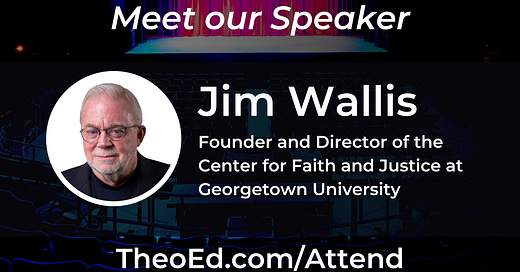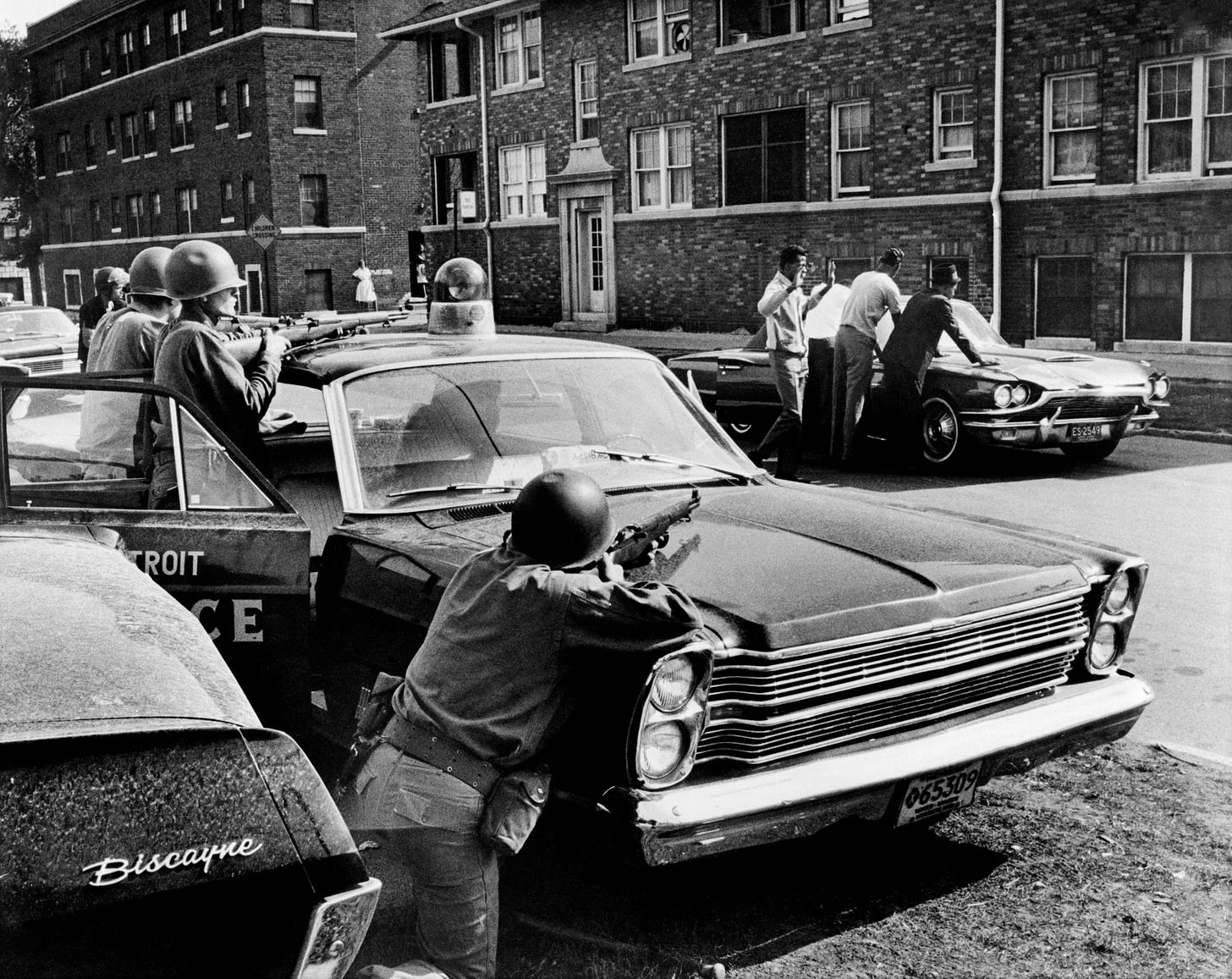A sneak peak at an upcoming speech: Crossing the Color Line
I’ve been invited by Emory’s Candler School of Theology and First Presbyterian Church of Atlanta to deliver "the talk of my life" this Sunday. Here's a taste of what I will say.
This Sunday, I’ve been invited by Emory’s Candler School of Theology and First Presbyterian Church of Atlanta to deliver a “TheoEd Talk.” It’s something like a TED Talk, but with the Bible, theology, and spirituality as its chief subjects, rather than technology, entertainment and design. The ecumenical speaker series is designed to gather Christian leaders to give “the talk of their lives” in 20 minutes or less, without notes. (Gulp.) Past speakers, and I encourage you to check out their great “library” of talks, include my friend Diana Butler Bass, Yolanda Pierce, Miroslav Volf and the Rev. Dr. Otis Moss III.
This Sunday, I’ll be joined by the Method minister and Irish peace-builder Gary Mason; Ethicist and theologian Dr. Jennifer Carlier; Episcopal Bishop Robert Wright of Atlanta; and the scholar and author Kristin Du Mez, who I recently hosted on my podcast “Soul of the Nation.”


The event is Sunday at 5:00 PM at Center Stage in Midtown, Atlanta, and if you’re in the area, I’d love to see you in person. Virtual tickets to view the event online are also available.
My talk will be a blend of the personal, telling my story of crossing the color lines in my hometown of Detroit, and the theological, naming and condemning the dangerous heresy of White Christian Nationalism. I’ve been hard at work on the talk for the past several weeks, and I do hope you’ll watch it online this Sunday.
Here’s the first half of my talk, a little taste of what I will say on the stage this weekend.
Crossing the Color Line
My Church
My first conversion came when a fiery revival preacher came into our church one Sunday night, pointed his finger right at me and all the other “unsaved” kids who were made to sit in the front row for the special service. With fire and brimstone he proclaimed, “If Jesus came back tonight, your Mommy and Daddy would be taken to heaven, and you would be left all by yourself!”
It got my attention. I was getting up in years – I was six – and I realized that if what the preacher said were to happen, I would have a 5-year-old sister to support! My caring mother reassured me it was not about the wrath of God, but that God loved me and wanted me to be his child too. That sounded much better to me, so I signed up.
My second conversion, and the one which has stayed with me and continues to change my life – as conversions are supposed to do – came later, when I was a teenager.
I was born and raised in Detroit, the Motor City. About the time when I was about 16, I began to listen to my city – hear the news, read the paper, then some books, and started to have serious conversations with adult people.
Some big questions emerged and I began to feel that something was very wrong in my city and my country, but I found that people in my white neighborhood, white school, and white church didn’t want to talk about it.
I remember the questions I asked.
I said it seemed that life in White Detroit is very different from life in Black Detroit. Why is that?
I hear about people and families who are poor and even hungry, who don’t have enough jobs or good ones, who live in bad housing and in rough and dangerous places, and lots who have family members in jail. I don’t know anybody who has those things true in their lives, so how come others do, just a few short miles from where we live?
And the biggest question. I hear there are Black churches. How come I have never been told about them or why haven’t we ever visited them or been visited by them?
The answers from my white church and world were:
You’re too young to ask those questions; when you get older you will understand.
OR,
We don’t know why things are that way either, but they have always been this way.
The most honest answer I received was this: If you keep asking those kinds of questions you are going to get in a lot of trouble. That was the only answer that later proved to be true.
My City
I realized that I wasn’t going to get any real answers to those questions in the world where I lived, so I decided to travel outside my world, to make my little pilgrimage into another world to find the answers. I tell my students to trust their questions and follow them to where they lead you.
So I took my naive white boy questions into what we called “the inner city” to try and find out why Black Detroit seemed so different from White Detroit, and why we were so separated. Even – and especially – in our churches.
I needed money for college. So I looked for jobs that would place me alongside young Black men in the city of Detroit who might have some answers to my questions. In those new jobs I began to listen to life stories that were very different from mine, stories that would ultimately change my story.
I also went to Black churches and was immediately welcomed in, with patient and generous answers to my many obvious questions. What they said sounded like what I thought Christianity was supposed to be. I began to realize it was very different to be a Black Christian than a White Christian.
Perhaps the greatest “epiphany” came when a new friend who was a fellow janitor and elevator operator (yes I am that old!) took me home to meet his family one night. His mother responded to a discussion we were having about the police in our city of Detroit, whose treatment of Black people would spark many confrontations. “I tell my children,” she told me, “If you are ever lost and can’t find your way home, duck under a stairwell or hide behind a building if you see a police officer; and when he passes by you can find your own way home.”
I was deeply struck by that advice from a mother who wasn’t any kind of political militant, but was completely focused on protecting and raising her kids. My own Mom’s words to her five white children screamed in my head, She told us, “If you are ever lost, and can’t find your way home, look for a policeman; policemen are your friends; they will take you by the hand and bring you home safely.” Loving mothers who gave completely different advice to their children if they were white or Black.
I would learn that Butch and I were born in the same city but lived in different countries. The more I listened and learned across color lines, the more that different standard applied to everything else too.Across the color line I found a different world still waiting to be fully, freely, and safely included in America.
My own world view has been most shaped by being in places where I was never supposed to be; and meeting people I was never supposed to meet, listen to, and hear their stories. I have realized in my later years that almost all of my mentors had also crossed the color line in America: white people making their own pilgrimage into Black communities and churches, and Black leaders venturing into white communities and power structures to make things different. Better, more just, more human, and more faithful to what our religion tells us. I learned that it is proximity that changes things and is what teaches us whites the work that we must do in our own communities.
To hear the rest of this talk, please visit TheoEd’s website this Sunday at 5 pm et.





